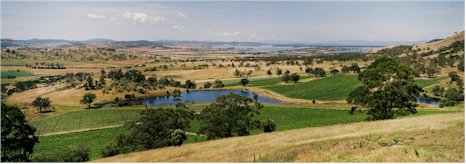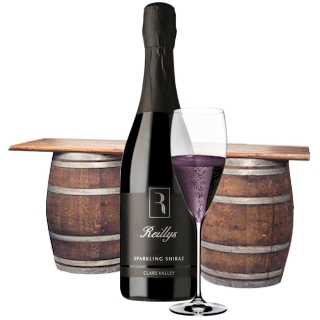
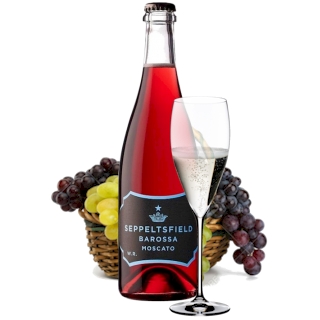
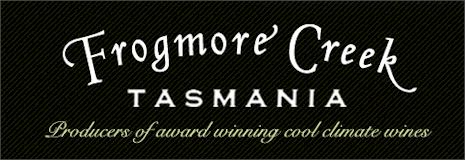
The Frogmore Creek vineyards were founded around the principles of sustainable farming practises. The site was chosen due to it's suitability to growing great Pinot Noir, Riesling and Chardonnay. The vineyard is located at Penna which is 30 minutes drive from the city of Hobart. Critical climate indicators such as rainfall, temperature, sunshine hours and number of rain days combine in perfect balance to create an ideal natural environment for growing premium quality grapes. The property is 316 acres with 81 acres suitable for vines. The remaining land accommodates grazing, animals, dams and a large portion (almost 80 acres) is set aside for conservation projects. The current varietals include Pinot Noir, Chardonnay, Riesling, Sauvignon Blanc and Pinot Grigio.
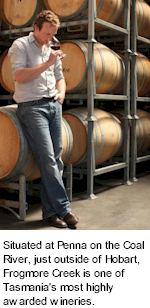
Frogmore Creek aims to maintain and nurture a biologically diverse environment for the health of the vines and resident fauna. By utilising sustainable farming methods the waterways will remain a safe place for frogs, fish and birds. Since the first vines were planted and the dams established, four species of frogs have made the Frogmore Creek Vineyard their home. Frogmore Creek Vineyard was developed on an organic philosophy, incorporating compost and cover cropping for soil health and vine fertility, organic fungicides for vine health and protection against unwanted disease, and organic integrated pest management to combat pests. The skins, seeds and pressings from the grapes are composted over 6-8 months, after which time the matured compost can be used in the vineyard.
Frogmore Creek have a holistic outlook on farming and strongly believe if you have and build healthy soil, then healthy plants will result. It follows that healthy plants are much less susceptible to diseases and pests. The philosophy is to find a way to control problems without introducing chemicals. The use of animals within vineyards is one of the techniques used in sustainable farming.
Frogmore Creek uses Guinea Fowl in the vineyard to naturally control wingless grasshoppers and weevils. Both of these pests cause havoc as they eat the shoots and leaves of the vines. The Guinea Fowl eliminate the need for insecticides by feeding on these unwanted insects. The birds are successful as they have few predators in Tasmania, and at night they sleep safely up high in the trees.
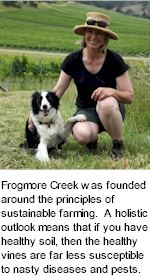
Native wasps are an integral part of the estate's Light Brown Apple Moth (LBAM) control programme. There are a number of native wasp species indigenous to Tasmania, each of which attack LBAM at a different stage in its life cycle. Cover crops are grown in between the vines to assist in the improvement of soil fertility, soil structure and as a shelter and food source for beneficial insects. Frogmore Creek employs crimson clover, oats, strawberry clover and red clover, to name a few.
The estate's Campania Vineyard is well known for being the location of one of the first sightings of the thylacine, also known as the Tasmanian Tiger. The Campania property consists of 1008 acres of which 111 acres are under vine. The vines are planted on various parts of the property, selected for the suitability to each variety. Campania Vineyard consists of 27 different blocks, situated on very different altitudes. The lowest block is planted approximately 80 metres above sea level and one of the Pinot Noir blocks is planted at approximately 180 metres above sea level. Each vineyard block contains differing soil structures giving unique characteristics to each varietal. All blocks were planted with northerly aspects, allowing the vines to receive the most sunlight possible.
Frogmore Creek also source fruit from various growers across the state. The growers are chosen because they use the best practices and are located within premium grape growing regions. Sourcing grapes from these reputable growers allows Frogmore Creek to have more control over the winemaking process especially in years when extreme weather conditions may effect estate grown vines. Frogmore Creek also produces Forty-Two Degrees South and the Storm Bay wines. Distributing exceptional quality wines from the finest Tasmanian regions to wine lovers around the world.
